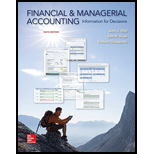
Cost Concept:
As per this concept actual value of the assets are recorded in the books of accounts. The accountant of the company should always understand the importance of this concept as when payment of asset to the seller occur then only record the transaction.
Business Entity Assumption:
The business entity concept means that the business man should record the business transaction and personal transaction separately. Each form of business organization is a separate business entity. So, the accountant will record the personal and business transaction separately.
Revenue Recognition Principle:
Revenue recognition principle provides the rules and regulation that should be followed while recognizing the revenue. In accrual basis of accounting the accountant record the transaction of sales when it occur not when the payment against sale is received.
Expense Recognition Principle:
As per this accounting principle the expense occurs to initiate sales must be recorded in the same accounting period. If the expenses occur not directly relates to the sales period than it should be expense incurred.
Going Concern Assumption:
As per this concept the life of the company is not defined. As company is artificial person and the death of company is not possible. If auditor of the company says that the future of company is dark then only the question on existence of company arises.
To identify: The accounting principle or assumption best as per the situation.
Want to see the full answer?
Check out a sample textbook solution
Chapter 1 Solutions
Financial and Managerial Accounting: Information for Decisions

 AccountingAccountingISBN:9781337272094Author:WARREN, Carl S., Reeve, James M., Duchac, Jonathan E.Publisher:Cengage Learning,
AccountingAccountingISBN:9781337272094Author:WARREN, Carl S., Reeve, James M., Duchac, Jonathan E.Publisher:Cengage Learning, Accounting Information SystemsAccountingISBN:9781337619202Author:Hall, James A.Publisher:Cengage Learning,
Accounting Information SystemsAccountingISBN:9781337619202Author:Hall, James A.Publisher:Cengage Learning, Horngren's Cost Accounting: A Managerial Emphasis...AccountingISBN:9780134475585Author:Srikant M. Datar, Madhav V. RajanPublisher:PEARSON
Horngren's Cost Accounting: A Managerial Emphasis...AccountingISBN:9780134475585Author:Srikant M. Datar, Madhav V. RajanPublisher:PEARSON Intermediate AccountingAccountingISBN:9781259722660Author:J. David Spiceland, Mark W. Nelson, Wayne M ThomasPublisher:McGraw-Hill Education
Intermediate AccountingAccountingISBN:9781259722660Author:J. David Spiceland, Mark W. Nelson, Wayne M ThomasPublisher:McGraw-Hill Education Financial and Managerial AccountingAccountingISBN:9781259726705Author:John J Wild, Ken W. Shaw, Barbara Chiappetta Fundamental Accounting PrinciplesPublisher:McGraw-Hill Education
Financial and Managerial AccountingAccountingISBN:9781259726705Author:John J Wild, Ken W. Shaw, Barbara Chiappetta Fundamental Accounting PrinciplesPublisher:McGraw-Hill Education





